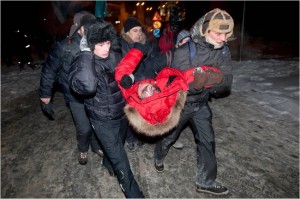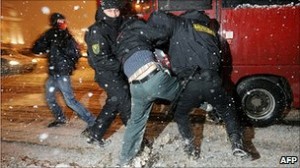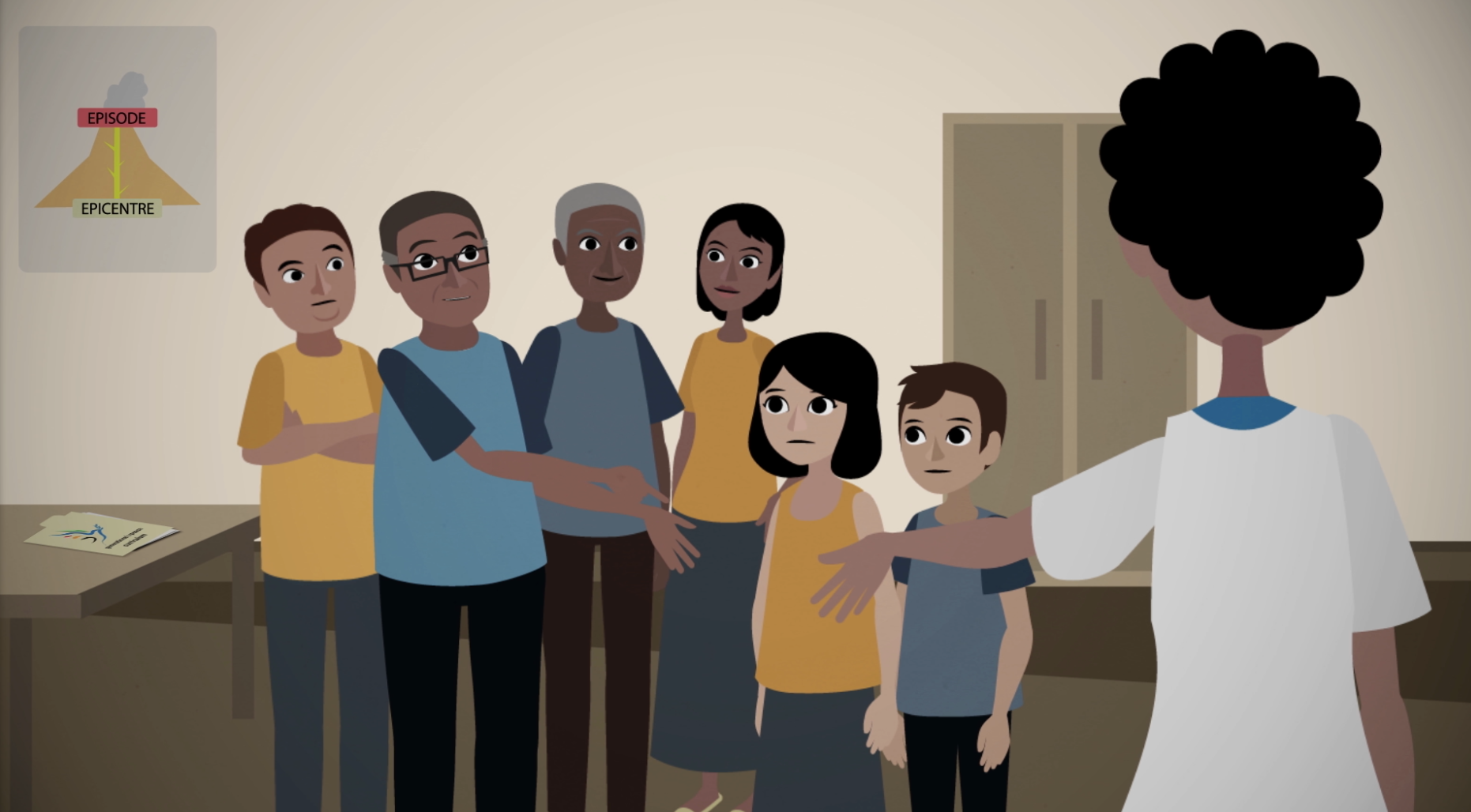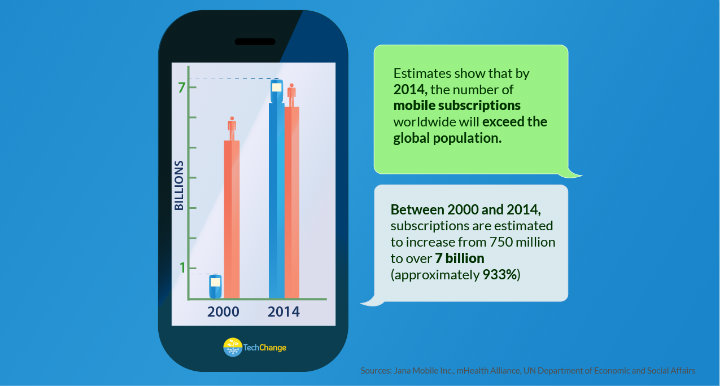While the world’s eyes are on Egypt, it is imperative not to forget the struggle in Belarus, which has entered a new phase following the December 2010 election. The aftermath of the recent elections in Belarus sent shockwaves around Europe; it also provides a crucial test for the Obama Administration’s attitudes towards human rights. In Belarus, the 19 December 2010 election, marked by widespread fraud, was followed with wide demonstrations by the opposition. In the month afterwards, the Belarusian regime of Alyaksandr Lukashenka has engaged in a broad crackdown, arresting over 600 activists and 7 of the presidential candidates. In addition to those of the opposition, social media websites such as Facebook, Twitter, Youtube, and even Google Talk and Gmail were blocked in Minsk. Human rights groups, independent media and other NGOs have been pressured to close or suffered online attacks against their websites in addition to threats and tirades from Minsk. In recent days, the government has even threatened a return to Stalin era tactics of abducting the children of imprisoned dissidents and sending them to state orphanages.
 Despite these efforts, social media remained at the forefront of getting news about the crackdown. Videos captured from cellphones and other cameras and posted to Youtube showed savage beatings and abuses by authorities. Indeed, recent uprisings reveal that a mobile phone “can be a tremendous benefit for an activist in a protest (a camera, organizing tool, and portal to foreign media in one).” However, those same cellular phones proved vulnerable to reactionary repression, as in Belarus hundreds of people were summoned by the KGB after phone records revealed they were at the site of the antigovernment protests on December 19. It is an unfortunate sign of the 21st Century that Human Rights Watch recently reported that “Belarus and Hungary have adopted restrictive laws designed to impose on new media the same restrictions they have placed on traditional media.” While new ways to fight for freedom are flourishing, old repressions continue to try and silence the people’s voice.
Despite these efforts, social media remained at the forefront of getting news about the crackdown. Videos captured from cellphones and other cameras and posted to Youtube showed savage beatings and abuses by authorities. Indeed, recent uprisings reveal that a mobile phone “can be a tremendous benefit for an activist in a protest (a camera, organizing tool, and portal to foreign media in one).” However, those same cellular phones proved vulnerable to reactionary repression, as in Belarus hundreds of people were summoned by the KGB after phone records revealed they were at the site of the antigovernment protests on December 19. It is an unfortunate sign of the 21st Century that Human Rights Watch recently reported that “Belarus and Hungary have adopted restrictive laws designed to impose on new media the same restrictions they have placed on traditional media.” While new ways to fight for freedom are flourishing, old repressions continue to try and silence the people’s voice.
 These measures have been met with broad, bipartisan disapproval from the United States, as Secretary of State Clinton issued a joint statement with EU Foreign Minister Catherine Ashton condemning the arrests. Sens. John Kerry, Joe Lieberman and John McCain together expressed their disapproval and concern. In addition, former President George W. Bush, Secretary Rice, and incoming Chairwoman of the House Committee on Foreign Affairs Ileana Ros-Lehtinen (R-FL) participated in Radio Free Europe’s “Voices of Solidarity” project, reading the names of those imprisoned.
These measures have been met with broad, bipartisan disapproval from the United States, as Secretary of State Clinton issued a joint statement with EU Foreign Minister Catherine Ashton condemning the arrests. Sens. John Kerry, Joe Lieberman and John McCain together expressed their disapproval and concern. In addition, former President George W. Bush, Secretary Rice, and incoming Chairwoman of the House Committee on Foreign Affairs Ileana Ros-Lehtinen (R-FL) participated in Radio Free Europe’s “Voices of Solidarity” project, reading the names of those imprisoned.
The election aftermath and the outrage that has followed look to upset the cautious steps towards normalization and liberalization with the West that preceded the election. Just 19 days before the election, the US and Belarus agreed that the latter would eliminate all its Highly Enriched Uranium. The two foreign ministers issued a joint statement that both the US and Belarus “acknowledged that enhanced respect for democracy and human rights in Belarus remains central to improving bilateral relations.” In the run-up to the 2010 election, Belarus liberalized its election laws closer to western norms, allowing opposition candidates to run, hold campaign events, and criticize the government on state television, although the counting and tabulations processes remained firmly in state hands and subject to fraud.
The question now is how firm US and European pressure will remain on Belarus, and whether their efforts can persuade Lukashenka to back down from the post-election return to deeper repression. The US and EU have moved to restore sanctions that had been eased in the face of earlier liberalization. To persuade Lukashenka and his regime to change will require consistent international pressure as well as encouragement.
Photo credits: www.bbc.co.uk, www.nytimes.com
David Crockett is a freelance political research analyst with a background in human rights and foreign policy. He has previously worked in South Africa and Eastern Europe.



